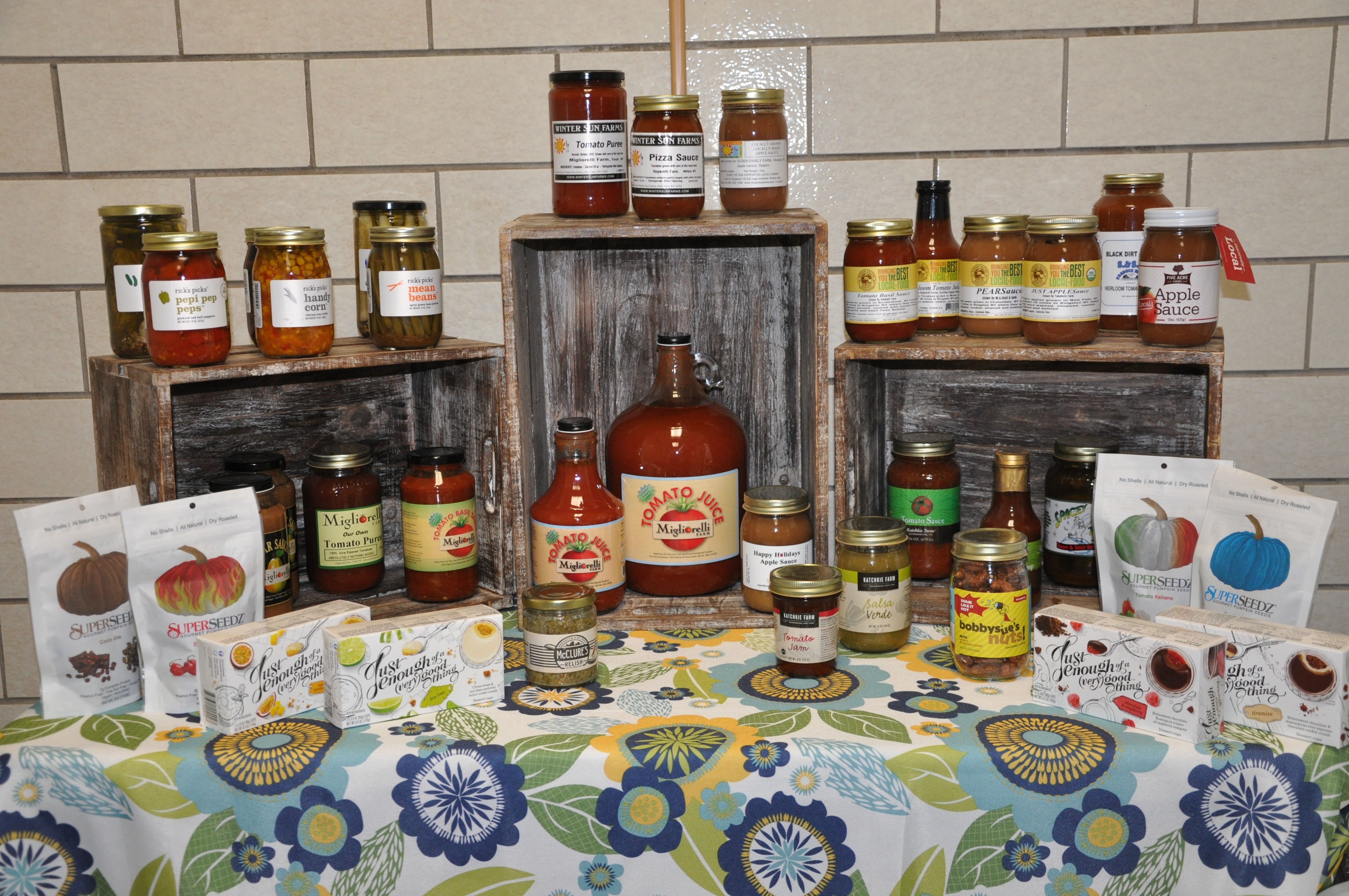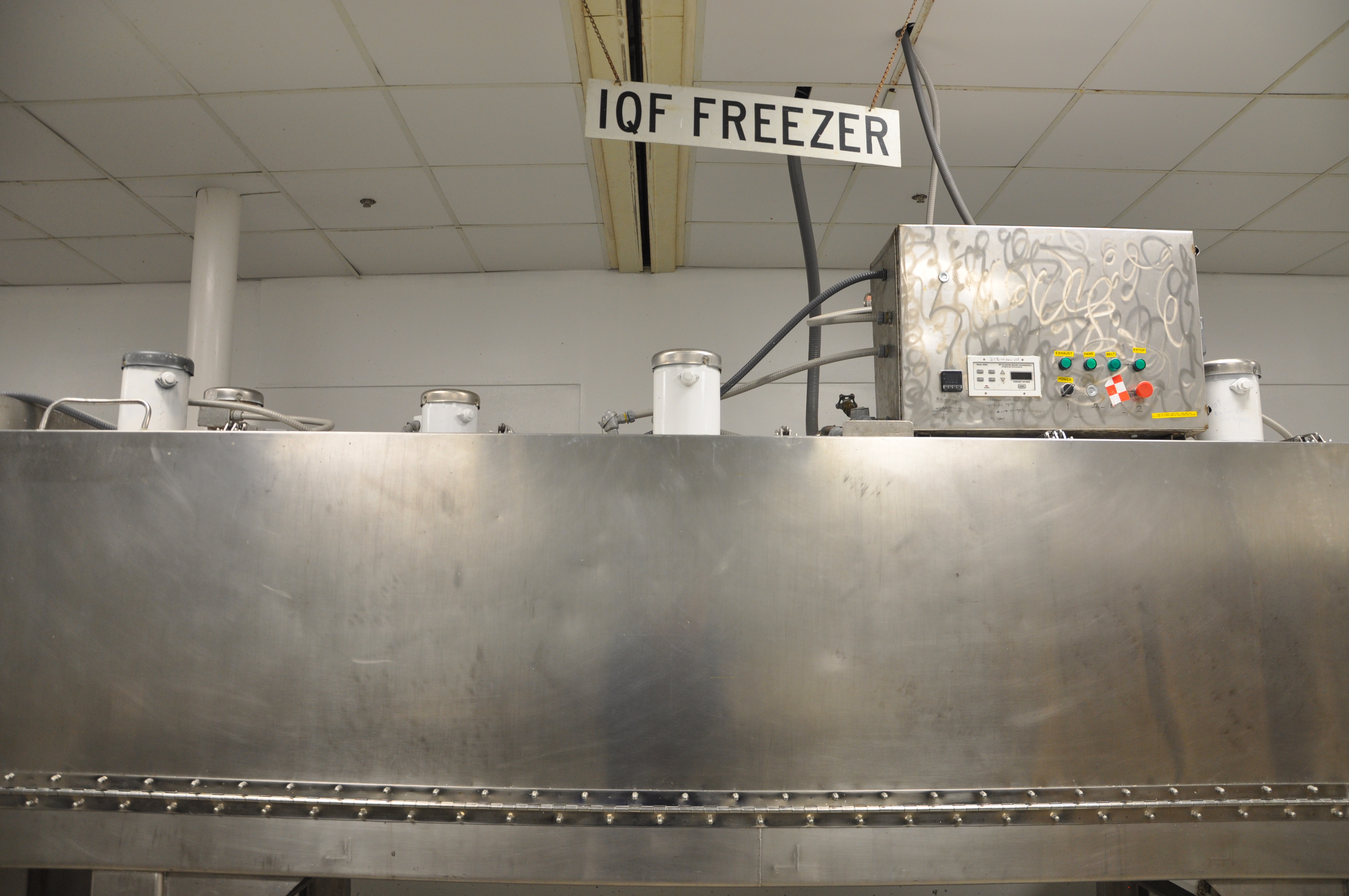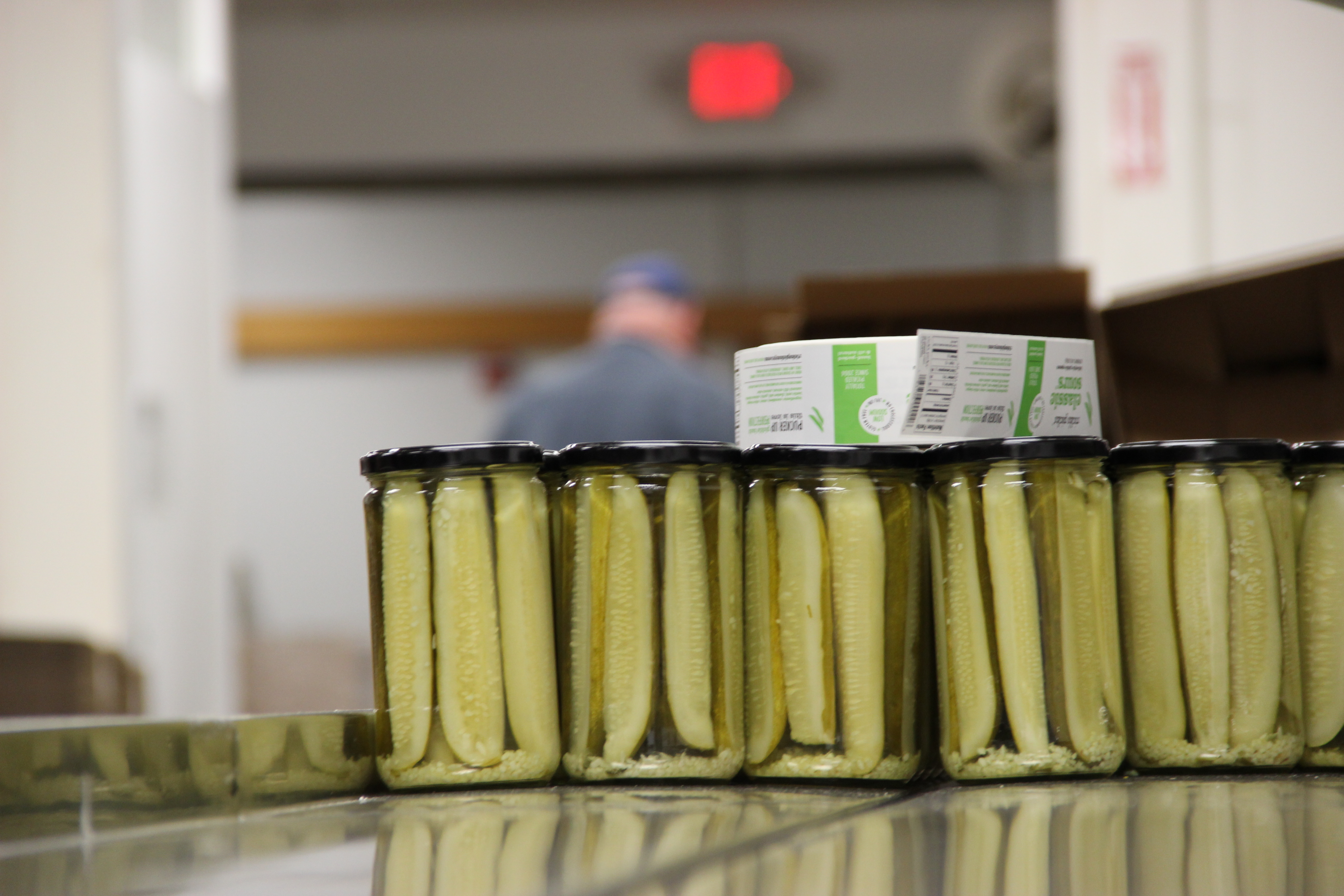After weeks of exploring various farms in the Hudson Valley last Friday we got to see where some of that food goes at Farm to Table Co-Packers, where fresh produce is turned in to value-added products and packaged to be sold. The company was founded by Jim Hyland, who realized there were a lot of people like himself that wanted healthy, local food during the winter and a lot of farmers who aren’t able to sell their surplus during the harvest season and so had to let it go to waste. He created Farm to Table Co-Packers so that the two problems could solve each other; surplus food in the harvest could be absorbed and turned into products with a higher shelf-life, allowing farmers to sell and people to buy all year round instead of just during the short harvest season. He is his own best customer, with his other business, Winter Sun Farms, flash-freezing local produce during the harvest season at Farm to Table Co-Packers. Winter Sun then distributes the frozen food during the winter to those who’ve purchased a membership, like a CSA farm would distribute food in the summer.
The company was founded by Jim Hyland, who realized there were a lot of people like himself that wanted healthy, local food during the winter and a lot of farmers who aren’t able to sell their surplus during the harvest season and so had to let it go to waste. He created Farm to Table Co-Packers so that the two problems could solve each other; surplus food in the harvest could be absorbed and turned into products with a higher shelf-life, allowing farmers to sell and people to buy all year round instead of just during the short harvest season. He is his own best customer, with his other business, Winter Sun Farms, flash-freezing local produce during the harvest season at Farm to Table Co-Packers. Winter Sun then distributes the frozen food during the winter to those who’ve purchased a membership, like a CSA farm would distribute food in the summer. We saw the machine where produce is frozen with liquid nitrogen and the freezer where the food is stored afterwards. There were many other machines as well, such as a corn shucker and vegetable washer that had been modified from a dishwasher left over from when the building was an IBM cafeteria. Some clients provide recipes to make goods like tomato sauce or jam, which the company does as well. After fresh food like tomatoes or cucumbers are made into value-added products like tomato sauce or pickles, they then must be packaged, put in jars, labeled, boxed, and transported to the clients who will sell them, whether that be at a supermarket or a farmers markets.
We saw the machine where produce is frozen with liquid nitrogen and the freezer where the food is stored afterwards. There were many other machines as well, such as a corn shucker and vegetable washer that had been modified from a dishwasher left over from when the building was an IBM cafeteria. Some clients provide recipes to make goods like tomato sauce or jam, which the company does as well. After fresh food like tomatoes or cucumbers are made into value-added products like tomato sauce or pickles, they then must be packaged, put in jars, labeled, boxed, and transported to the clients who will sell them, whether that be at a supermarket or a farmers markets. Farm to Table Co-Packers has many clients with food coming in from as far as Mexico to keep them working during the winter, but the company was founded for local farmers, so they are very flexible in dealing with small farms. The creation of value-added products not only allows farmers to sell their surplus harvest to places like Winter Sun, they can also get their own products back with a longer shelf-life. This means they can keep stands open at farmers markets for longer, bringing in more income and creating more customer loyalty. The relationship with local farmers is also good for the co-packers as the parts of the fruits and vegetables that can’t be used can be picked back up by the farmers to be used as compost, which means the co-packers don’t have to deal with the waste.
Farm to Table Co-Packers has many clients with food coming in from as far as Mexico to keep them working during the winter, but the company was founded for local farmers, so they are very flexible in dealing with small farms. The creation of value-added products not only allows farmers to sell their surplus harvest to places like Winter Sun, they can also get their own products back with a longer shelf-life. This means they can keep stands open at farmers markets for longer, bringing in more income and creating more customer loyalty. The relationship with local farmers is also good for the co-packers as the parts of the fruits and vegetables that can’t be used can be picked back up by the farmers to be used as compost, which means the co-packers don’t have to deal with the waste. When touring Farm to Table Co-Packers it was impressed on us how complicated an operation it is, organizing various suppliers and farmers and clients, meeting their different needs, transporting goods that need to be kept frozen or refrigerated, keeping up with changing food safety levels, and running basically 24/7 during the harvest season. The work is worth it though and they provide an important service to the Hudson Valley, making sure local, healthy food is available to people all year round.
When touring Farm to Table Co-Packers it was impressed on us how complicated an operation it is, organizing various suppliers and farmers and clients, meeting their different needs, transporting goods that need to be kept frozen or refrigerated, keeping up with changing food safety levels, and running basically 24/7 during the harvest season. The work is worth it though and they provide an important service to the Hudson Valley, making sure local, healthy food is available to people all year round.
To learn more about Farm to Table Co-Packers, you can visit their website here!